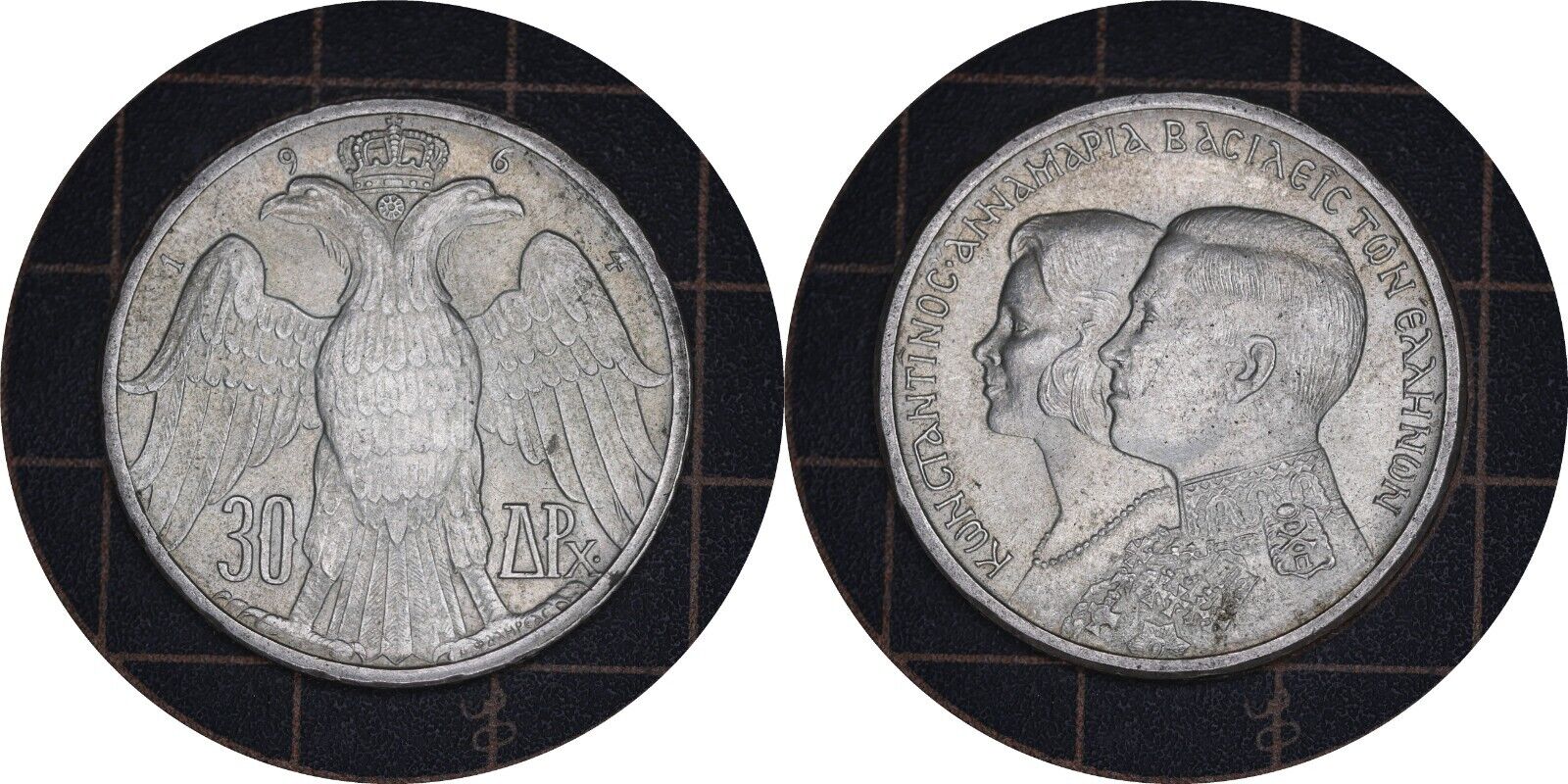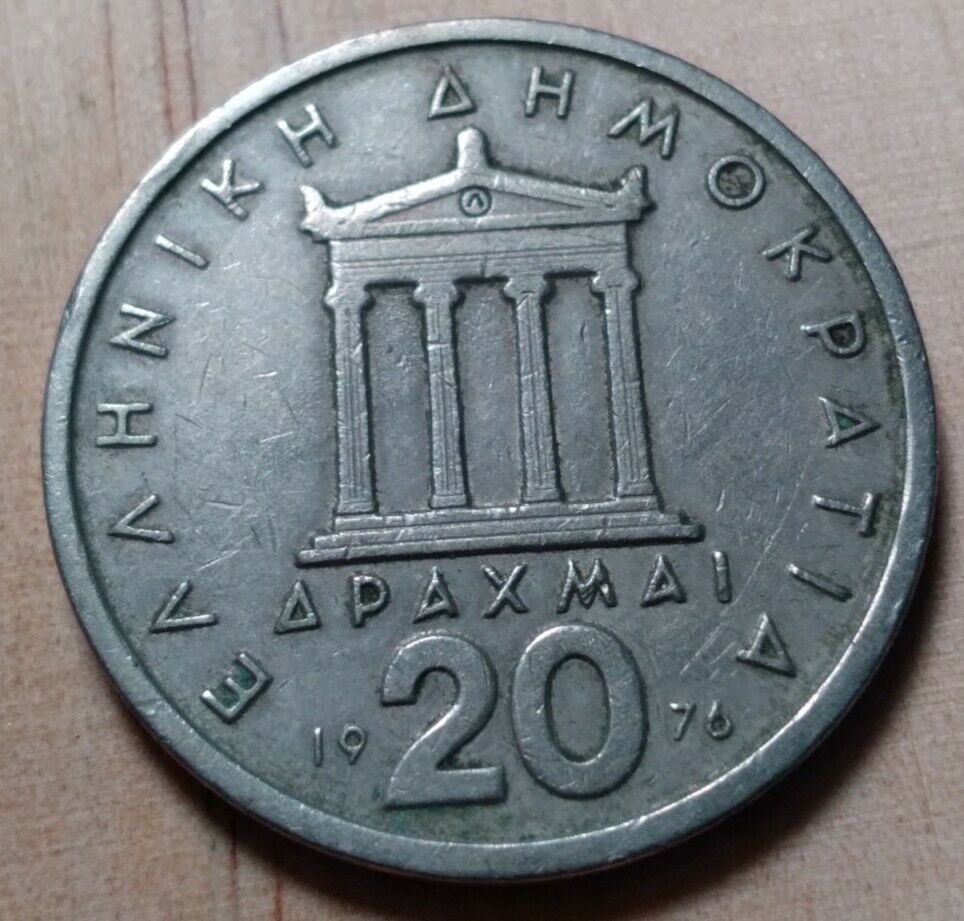-40%
Gold Proof 🅰️ Greece 5000 Drachmai 1984 God APOLLO🅰️ GRECIA GRECE Griechenlan
$ 1055.47
- Description
- Size Guide
Description
The item on the pictures is the one that you will receive.Look carrefully and judge for your self for the quallity and the grade.
S&h is .90 for all the world.
Registered mail with international tracking number.
Apollo
God of the Sun, light, oracles, knowledge, healing, diseases, music, poetry, songs, dance, archery, herds and flocks, and protection of young
Apollo Belvedere
, c. 120–140 CE
Abode
Mount Olympus
Symbol
Lyre
,
laurel wreath
,
python
,
raven
,
swan
, bow and arrows
Personal information
Parents
Zeus
and
Leto
Siblings
Artemis
,
Aeacus
,
Angelos
,
Aphrodite
,
Ares
,
Athena
,
Dionysus
,
Eileithyia
,
Enyo
,
Eris
,
Ersa
,
Hebe
,
Helen of Troy
,
Hephaestus
,
Heracles
,
Hermes
,
Minos
,
Pandia
,
Persephone
,
Perseus
,
Rhadamanthus
, the
Graces
, the
Horae
, the
Litae
, the
Muses
, the
Moirai
Children
Asclepius
,
Aristaeus
,
Corybantes
,
Hymenaeus
,
Ialemus
, ,
Apollonis
,
Borysthenis
,
Cephisso
,
Agreus
,
Amphiaraus
,
Amphissus
,
Amphithemis
,
Anius
,
Apis
, Arabus,
Centaurus
, Ceos, Chaeron, Chios,
Chariclo
, Chrysorrhoas,
Coronus
,
Cycnus
,
Cydon
,
Delphus
,
Dorus
,
Dryops
,
Eleuther
,
Epidaurus
,
Eriopis
,
Erymanthus
,
Eurydice
,
Hector
,
Iamus
,
Idmon
, Ileus,
Ismenus
,
Laodocus
, Lapithus,
Linus
,
Linus of Thrace
,
Lycomedes
,
Lycorus
,
Marathus
,
Melaneus
,
Melite
,
Miletus
,
Mopsus
,
Naxos
,
Oaxes
,
Oncius
,
Orpheus
,
Tenes
,
Troilus
, Parthenos, Phagrus,
Phemonoe
,
Philammon
, Phylacides, Phylander,
Polypoetes
,
Syrus
,
Tenerus
,
Trophonius
,
Zeuxippus
‹ The
template
Sidebar with collapsible lists
is being
considered for merging
. ›
Part of
a series
on
Ancient Greek religion
Features
[show]
Deities
[show]
Ethics
[show]
Practices
[show]
Sacred places
[show]
Texts
[show]
History
[show]
Religion portal
Ancient Greece portal
v
t
e
This article contains
special characters
.
Without proper
rendering support
, you may see
question marks, boxes, or other symbols
.
Apollo
[a]
is one of the most important and complex of the
Olympian deities
in
classical Greek
and
Roman religion
and
Greek
and
Roman mythology
. The national divinity of the Greeks, Apollo has been recognized as a god of archery, music and dance, truth and prophecy, healing and diseases, the
Sun
and light, poetry, and more. He is the son of
Zeus
and
Leto
, and the twin brother of
Artemis
, goddess of the hunt. Seen as the most beautiful god and the ideal of the
kouros
(ephebe, or a beardless, athletic youth), Apollo is considered to be the most Greek of all the gods. Apollo is known in Greek-influenced
Etruscan mythology
as
Apulu
.
[1]
As the patron deity of
Delphi
(
Apollo Pythios
), Apollo is an
oracular
god—the prophetic
deity
of the
Delphic Oracle
. Apollo is the god who affords help and wards off evil; various epithets call him the "averter of evil". Delphic Apollo is the patron of seafarers, foreigners and the protector of fugitives and refugees.
Medicine and healing are associated with Apollo, whether through the god himself or mediated through his son
Asclepius
. Apollo delivered people from epidemics, yet he is also a god who could bring ill-health and deadly
plague
with his arrows. The invention of archery itself is credited to Apollo and his sister Artemis. Apollo is usually described as carrying a golden bow and a quiver of silver arrows.
Apollo's capacity to make youths grow is one of the best attested facets of his panhellenic cult persona. As the protector of young (
kourotrophos
), Apollo is concerned with the health and education of children. He presided over their passage into adulthood. Long hair, which was the prerogative of boys, was cut at the coming of age (ephebeia) and dedicated to Apollo.
Apollo is an important pastoral deity, and was the patron of herdsmen and shepherds. Protection of herds, flocks and crops from diseases, pests and predators were his primary duties. On the other hand, Apollo also encouraged founding new towns and establishment of civil constitution. He is associated with dominion over
colonists
. He was the giver of laws, and his oracles were consulted before setting laws in a city.
As the god of
Mousike
(art of Muses), Apollo presides over all music, songs, dance and poetry. He is the inventor of string-music, and the frequent companion of the Muses, functioning as their chorus leader in celebrations. The lyre is a common
attribute of Apollo
. In Hellenistic times, especially during the 5th century BCE, as
Apollo Helios
he became identified among Greeks with
Helios
,
Titan
god of the sun
.
[2]
In Latin texts, however, there was no
conflation
of Apollo with
Sol
among the classical Latin poets until 1st century CE.
[3]
Apollo and Helios/Sol remained separate beings in literary and mythological texts until the 5th century CE.
Claudius Aelianus
wrote that Egyptians called Apollo
Horus
in their own language.
[











